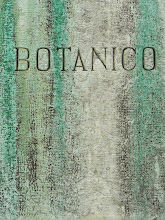 The Meanwhile Gardens, a little urban green space not far from where I live, are not Kensington Gardens (though they lie just within the Royal Borough), let alone the hanging gardens of Babylon or the gardens of the Summer Palace in Beijing, thoughtlessly destroyed by British troops during the Opium Wars. Nor are they the gardens of Kubla Khan’s pleasure dome in Xanadu. They are decidedly modest in scale, just a four-acre ribbon of trees, walks, borders, ponds and beds hugging the south side of the Grand Union Canal as it meanders from Paddington towards Kensal Green.
The Meanwhile Gardens, a little urban green space not far from where I live, are not Kensington Gardens (though they lie just within the Royal Borough), let alone the hanging gardens of Babylon or the gardens of the Summer Palace in Beijing, thoughtlessly destroyed by British troops during the Opium Wars. Nor are they the gardens of Kubla Khan’s pleasure dome in Xanadu. They are decidedly modest in scale, just a four-acre ribbon of trees, walks, borders, ponds and beds hugging the south side of the Grand Union Canal as it meanders from Paddington towards Kensal Green.All the same, they do what city gardens should do – they provide breathing space and greenery and surprising beauty in what was once a desperately poor zone and is still classified as a deprived ward. Children appreciate them; at one end there is a playhut and a skateboard park. For those requiring a quiet space for contemplation, there is a scented courtyard. The charity Mind in Kensington and Chelsea runs horticultural training schemes out of the gardens for people who have experienced mental health problems. The Meanwhile Gardens are rich in wild flowers and wildlife: the other day I heard blackcaps and chiffchaffs and willow warblers singing together in early summer concert.
I like their somehow provisional and self-deprecatory name. These are not the gardens of some glorious future, of Le Corbusier’s ville radieuse, in which all the problems of urban living have been miraculously solved, once and for all. They’ve had to eke out a place, between a council estate and one of London’s most notorious tower blocks, between the canal and the railway line. The Meanwhile Gardens do not promise salvation; salvation has not yet arrived and maybe never will, but in the meantime, life is still there to be lived.
What does it mean, the meantime or the meanwhile? It could sound like a poor time, an impoverished time. It tends to mean an interim time, the time while we are waiting (for what? for something better?). But the meantime, the meanwhile, is also where we live. Mean can also mean average, middle of the road. So the Meanwhile Gardens could be a place for dwelling as well as waiting, in between one thing and another, between the beginning and the ending, nel mezzo del cammin di nostra vita, or in the middle of the road of our lives, which are always between a beginning and an ending.
This may sound unambitious, but in their small way the Meanwhile Gardens point to something important. Our imperfect, provisional urban lives can be touched by beauty, can be open to flourishing and conviviality as well as mere survival. This was what the Roman poet Martial meant by rus in urbe (the countryside in the city), one of those phrases which has sounded through the centuries while its context has been forgotten.
In fact when Martial uses the phrase, he does so with a good deal of irony. He is writing from clamorously noisy Rome to his friend Sparsus, explaining why he has to take frequent country breaks to be able to think and be quiet. Rome gives him no rest at all. There are schoolteachers bawling in the morning and corn-grinders by night, not to mention hammering and metal-beating (it was a bit like that where I used to live in leafy St John’s Wood). Of course, Sparsus wouldn’t know about any of this; he lives in luxury and peace in his magnificent villa on the Janiculum hill complete with vineyard.
In other words, Martial’s rus in urbe is more of an aspiration than a reality, something in his day enjoyed only by the very rich and yearned for with envy by the hoi polloi. But it is a powerful aspiration, one which has caught the imagination of city-dwellers and planners for 2,000 years. For Martial, rus in urbe seems to be a private preserve in the midst of teeming public urban “noise and smog”. But what if rus in urbe could enter the public realm?
The great parks of cities such as London and Paris mostly started as royal or aristocratic playgrounds before being handed over to the public. The Meanwhile Gardens, on the other hand, were never an aristocratic preserve. Thirty-three years ago a local sculptor called Jamie McCullough had the idea that a derelict industrial area could be turned into a community garden. The council (then Westminster) gave temporary permission; a nickname was coined and it became, paradoxically, permanent.
This modest and provisional achievement, for me, may be a better guide for the cities of the present and the future than either aristocratic largesse or utopian planning. We cannot expect another Hyde Park or Bois de Boulogne; but in cities all over the world there are crannies which, with a bit of imagination and will, can be greened.
This is regeneration in its most basic form; another poet nearer our time, Gerard Manley Hopkins, saw a world already “seared with trade; bleared, smeared with toil”, but he also recognised something else: “There lives the dearest freshness deep down things.”
in Financial Times, 20 de Junho de 2009
Nota: Para saber mais, visite o site oficial do projecto www.mgca.f2s.com/index.html



Sem comentários:
Enviar um comentário